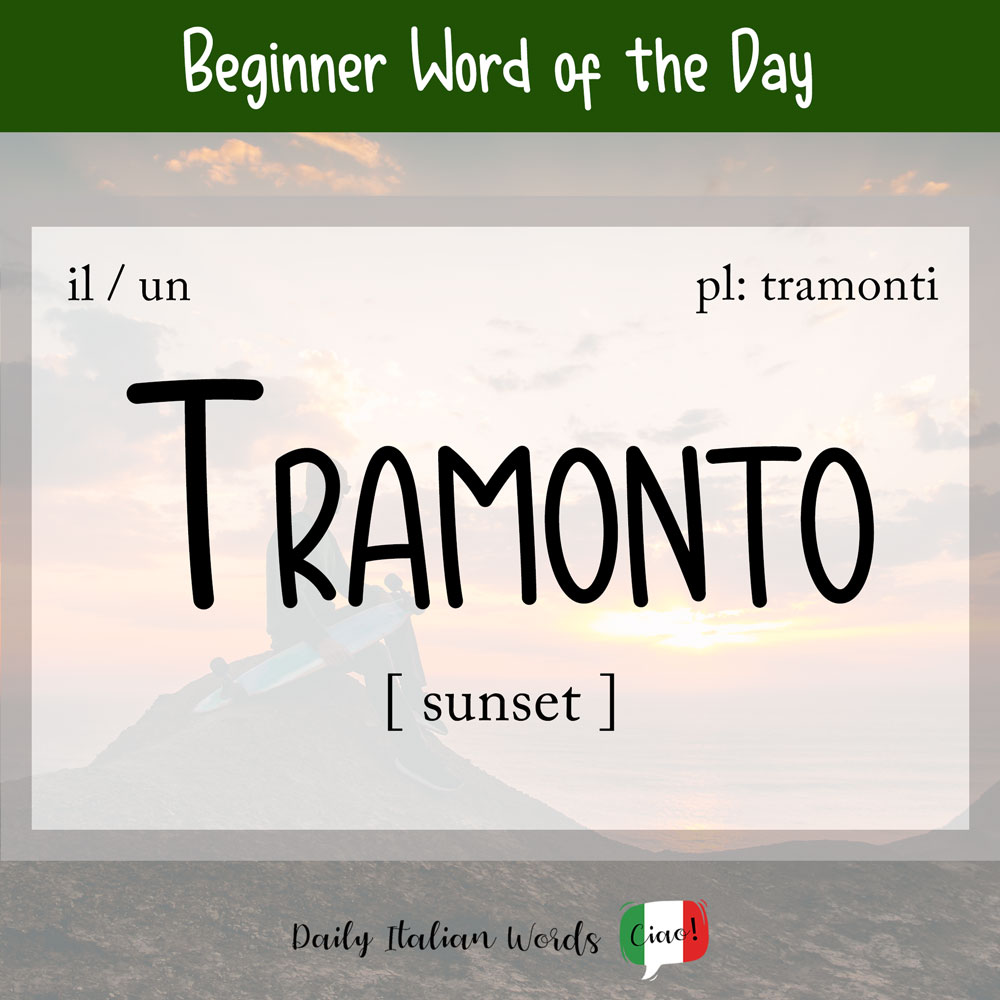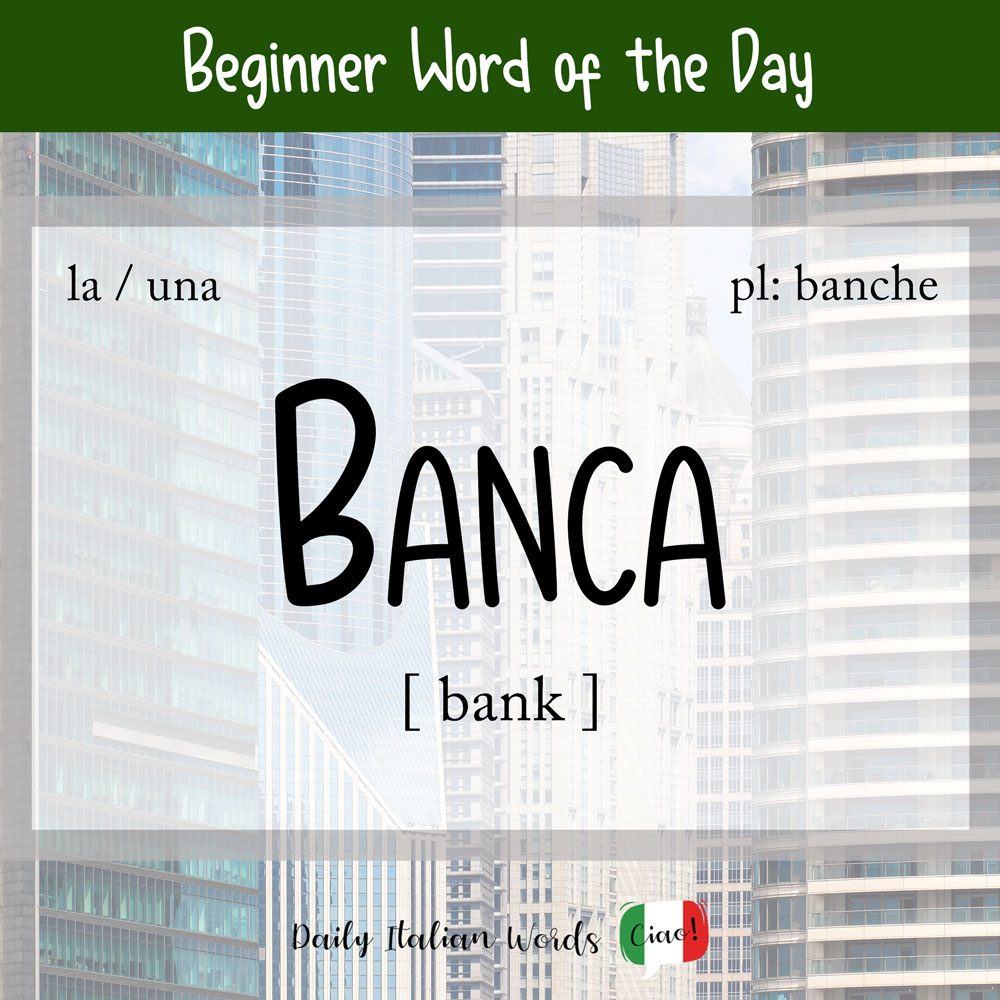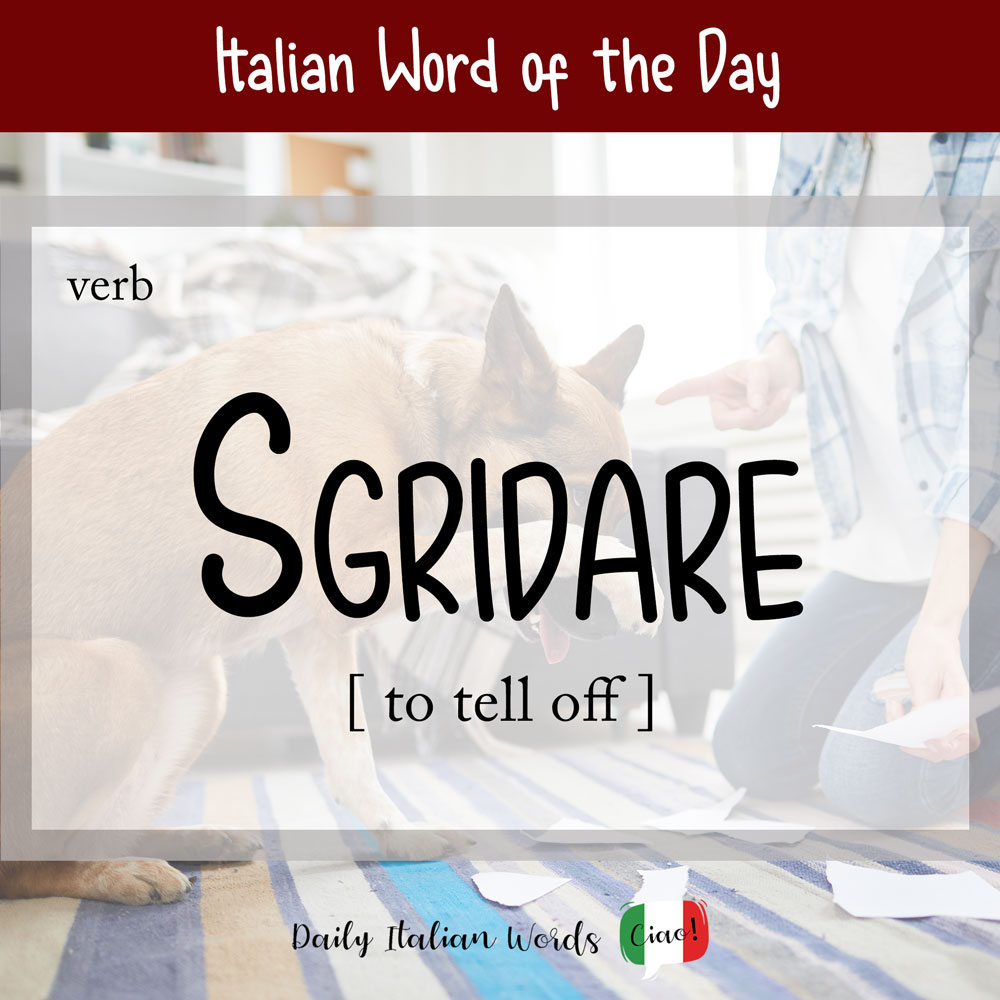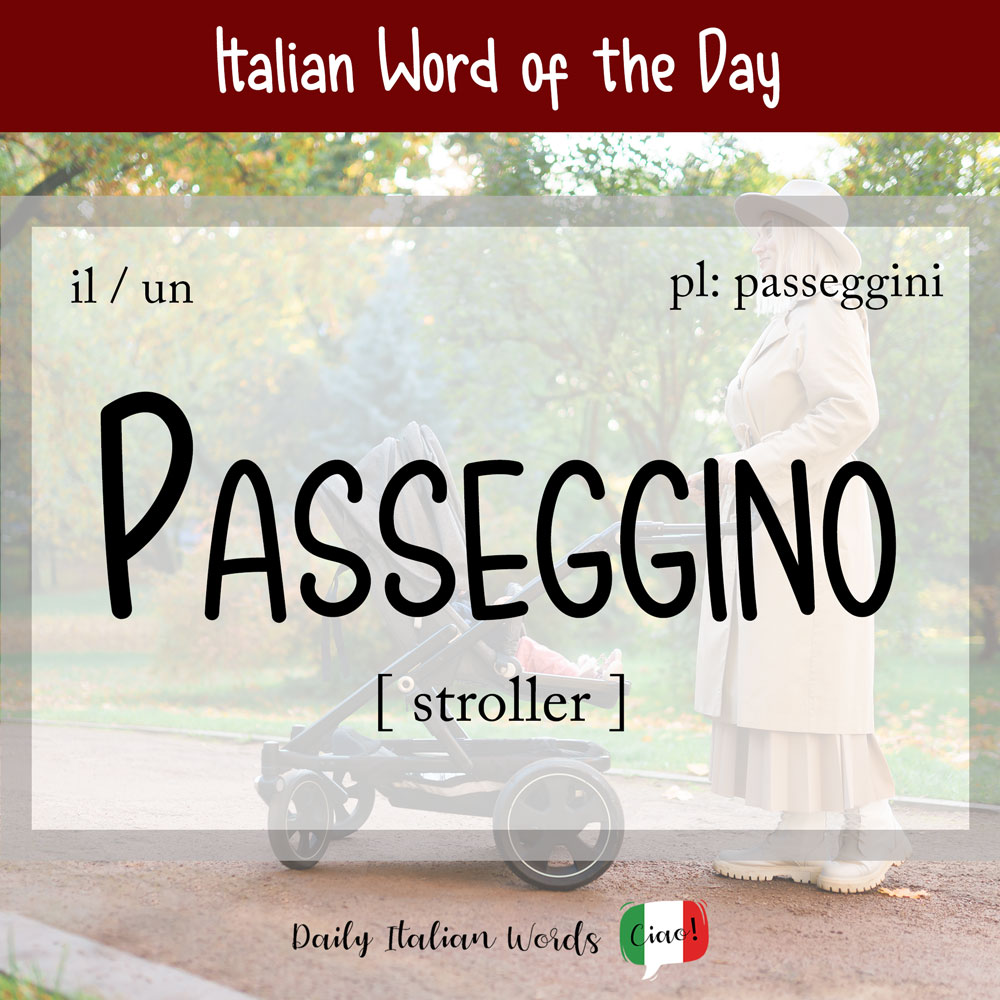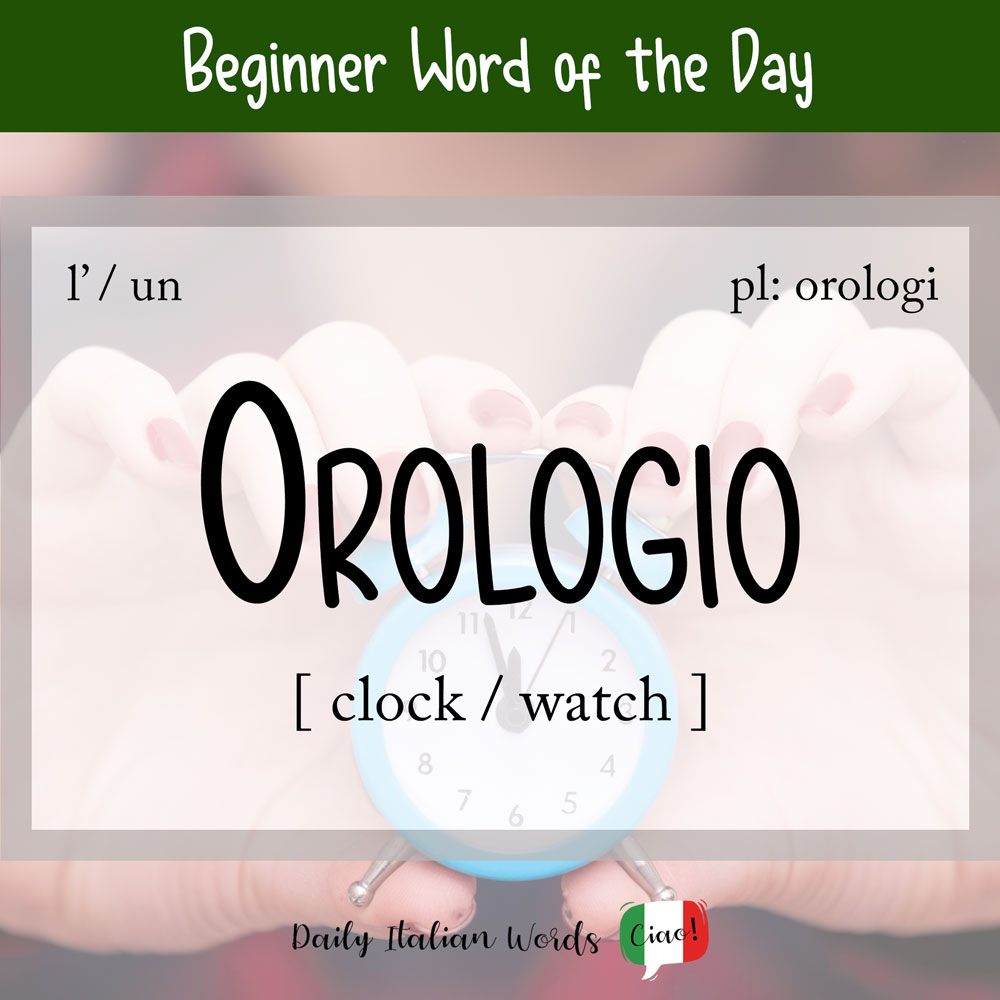Italian Word of the Day: Tramonto (sunset)
The word for sunset in Italian is tramonto (masculine, plural: tramonti). Derived from the verb tramontare (to set, fade, wane), it is a combination of the word monte (mount) and the prefix tra-. The latter normally means between, but in this case, the definition is closer to beyond. Together they form ‘to go beyond the …

